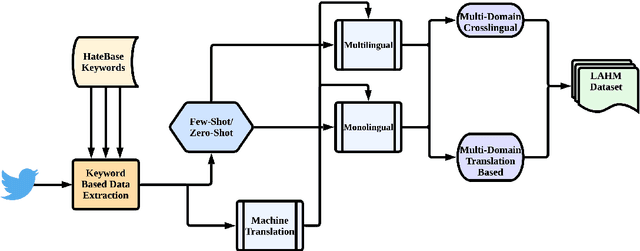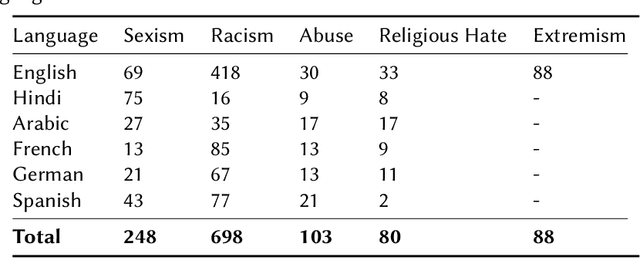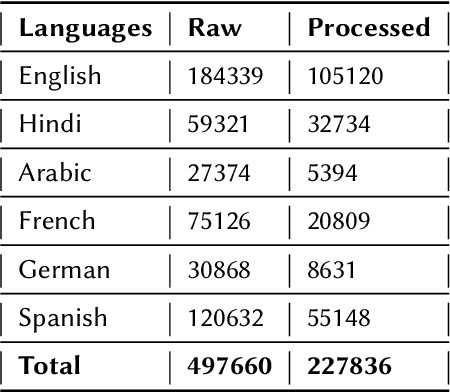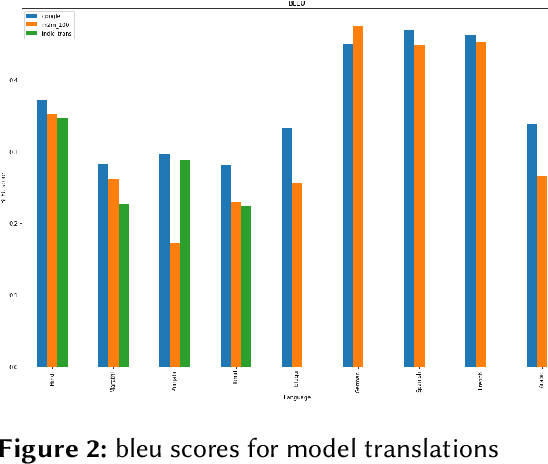Shubham Chandel
Copilot Evaluation Harness: Evaluating LLM-Guided Software Programming
Feb 22, 2024Abstract:The integration of Large Language Models (LLMs) into Development Environments (IDEs) has become a focal point in modern software development. LLMs such as OpenAI GPT-3.5/4 and Code Llama offer the potential to significantly augment developer productivity by serving as intelligent, chat-driven programming assistants. However, utilizing LLMs out of the box is unlikely to be optimal for any given scenario. Rather, each system requires the LLM to be honed to its set of heuristics to ensure the best performance. In this paper, we introduce the Copilot evaluation harness: a set of data and tools for evaluating LLM-guided IDE interactions, covering various programming scenarios and languages. We propose our metrics as a more robust and information-dense evaluation than previous state of the art evaluation systems. We design and compute both static and execution based success metrics for scenarios encompassing a wide range of developer tasks, including code generation from natural language (generate), documentation generation from code (doc), test case generation (test), bug-fixing (fix), and workspace understanding and query resolution (workspace). These success metrics are designed to evaluate the performance of LLMs within a given IDE and its respective parameter space. Our learnings from evaluating three common LLMs using these metrics can inform the development and validation of future scenarios in LLM guided IDEs.
Predicting Code Coverage without Execution
Jul 25, 2023



Abstract:Code coverage is a widely used metric for quantifying the extent to which program elements, such as statements or branches, are executed during testing. Calculating code coverage is resource-intensive, requiring code building and execution with additional overhead for the instrumentation. Furthermore, computing coverage of any snippet of code requires the whole program context. Using Machine Learning to amortize this expensive process could lower the cost of code coverage by requiring only the source code context, and the task of code coverage prediction can be a novel benchmark for judging the ability of models to understand code. We propose a novel benchmark task called Code Coverage Prediction for Large Language Models (LLMs). We formalize this task to evaluate the capability of LLMs in understanding code execution by determining which lines of a method are executed by a given test case and inputs. We curate and release a dataset we call COVERAGEEVAL by executing tests and code from the HumanEval dataset and collecting code coverage information. We report the performance of four state-of-the-art LLMs used for code-related tasks, including OpenAI's GPT-4 and GPT-3.5-Turbo, Google's BARD, and Anthropic's Claude, on the Code Coverage Prediction task. Finally, we argue that code coverage as a metric and pre-training data source are valuable for overall LLM performance on software engineering tasks.
LAHM : Large Annotated Dataset for Multi-Domain and Multilingual Hate Speech Identification
Apr 03, 2023



Abstract:Current research on hate speech analysis is typically oriented towards monolingual and single classification tasks. In this paper, we present a new multilingual hate speech analysis dataset for English, Hindi, Arabic, French, German and Spanish languages for multiple domains across hate speech - Abuse, Racism, Sexism, Religious Hate and Extremism. To the best of our knowledge, this paper is the first to address the problem of identifying various types of hate speech in these five wide domains in these six languages. In this work, we describe how we created the dataset, created annotations at high level and low level for different domains and how we use it to test the current state-of-the-art multilingual and multitask learning approaches. We evaluate our dataset in various monolingual, cross-lingual and machine translation classification settings and compare it against open source English datasets that we aggregated and merged for this task. Then we discuss how this approach can be used to create large scale hate-speech datasets and how to leverage our annotations in order to improve hate speech detection and classification in general.
Training and Evaluating a Jupyter Notebook Data Science Assistant
Jan 30, 2022



Abstract:We study the feasibility of a Data Science assistant powered by a sequence-to-sequence transformer by training a new model JuPyT5 on all publicly available Jupyter Notebook GitHub repositories and developing a new metric: Data Science Problems (DSP). DSP is a collection of 1119 problems curated from 306 pedagogical notebooks with 92 dataset dependencies, natural language and Markdown problem descriptions, and assert-based unit tests. These notebooks were designed to test university students' mastery of various Python implementations of Math and Data Science, and we now leverage them to study the ability of JuPyT5 to understand and pass the tests. We analyze the content of DSP, validate its quality, and we find that given 100 sampling attempts JuPyT5 is able to solve 77.5\% of the DSP problems. We further present various ablation and statistical analyses and compare DSP to other recent natural language to code benchmarks.
 Add to Chrome
Add to Chrome Add to Firefox
Add to Firefox Add to Edge
Add to Edge